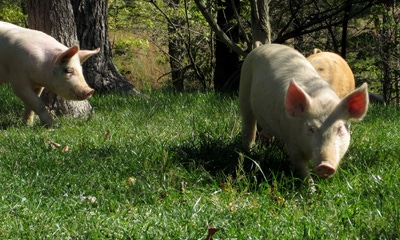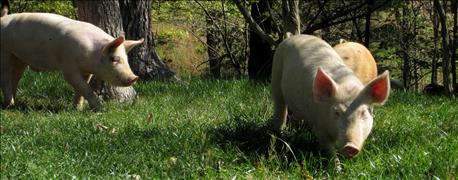
New York ag officials recently issued an alert that a small number of pasture-raised swine herds tested positive for swine brucellosis in Washington, Schoharie and Rensselaer counties (eastern New York). State and federal agencies are investigating and working to prevent further spread of the disease.
So far, commercial pork industry and other livestock aren’t known to be affected. Several swine herds that received animals from the positive herds were blood-tested and found negative.

AT RISK? Swine brucellosis popped up in pastured porkers as fair season got underway.
New York Ag Commissioner Richard Ball urges every pork producer, breeder and owner to adhere to best practices. Reach out to your ag department with any questions, and remain vigilant to keep this serious disease from spreading. The warning comes during local and county fair season where pigs are often commingled.
What to watch for
Contact with feral swine or wild boars might have been the disease source, since it’s more common in the South where higher populations of feral pigs exist. That might help explain why it popped up in pastured herds. But that vector hasn’t yet been confirmed in New York.
The disease isn’t always obvious. Key signs include abortions, arthritis and infertility. Boars may also be affected. And it can be passed to humans via close contact.
The greatest risk of SB spreading comes via the movement of live breeding animals. The most effective way to protect a herd against this disease is for producers who are purchasing breeders, particularly those that are from pasture-raised or hobby operations, to isolate new pigs from their existing herd until blood test results show that they haven’t been exposed.
The disease is spread from one swine to another primarily through direct contact. Risk of infection through indirect exposure is very low.
Swine herd owners who have received untested swine into their herds in 2015 or 2016 and who have observed SB symptoms or have any reason to suspect that their herds may be infected should contact their state ag department. In New York, that’s the Division of Animal Industry at 518-457-3502.
About the Author(s)
You May Also Like




